Shannon from Fierce Fatties tweeted a link at me earlier this week, to a report from the Robert Wood Johnson Foundation (RWJF) about the obesity scourge. The RWJF, in case you’re unfamiliar with it, is a massive “philanthropic” organization specializing in public health. The organization’s titular founder is, yes, the guy who also brought us Johnson & Johnson, the bazillion-dollar international megacorporation that makes everything from prosthetic joints and blood glucose monitoring systems, to that orange bar of Neutrogena facial soap melting away in your shower, to the tube of KY Jelly you used before you knew there were better lubes out there, to the “No More Tears” baby shampoo your mom washed your little noggin with when you were a wee bairn. You want a list of subsidiary holdings and consumer brands? Wikipedia’s got you covered.
It is not overstating the matter to say that Johnson & Johnson looms over all things healthcare like a towering and inescapable monolith. So it’s little wonder that the Robert Wood Johnson Foundation should rank as the ninth wealthiest charitable organization in the world, outmatched by such notable competition as the J. Paul Getty Trust, the Ford Foundation, the Howard Hughes Medical Institute, and coming in first, the Bill and Melinda Gates Foundation. These are all organizations that deal in billions and billions of dollars, and many of them do quite a bit of good.
This, of course, is not one of those cases.
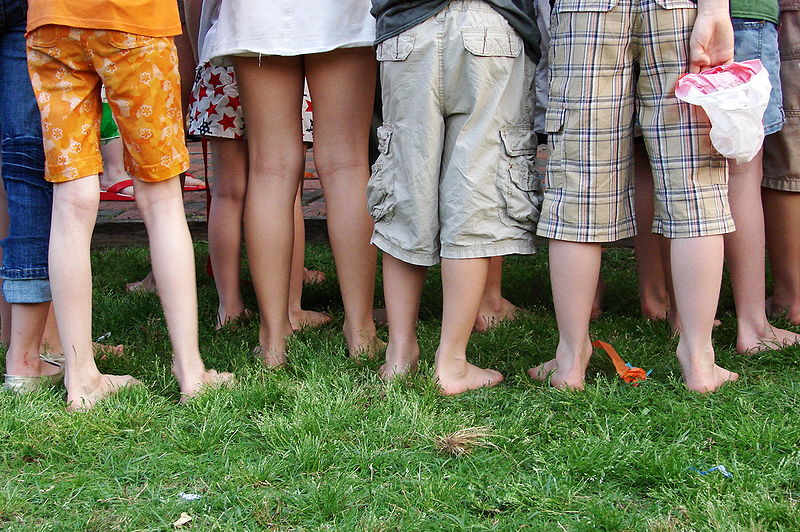
Two researchers at the Harvard School of Public Health have made a controversial recommendation in an opinion piece in the Journal of the American Medical Association. They suggest that state laws governing child abuse be employed to remove “extremely” fat children from their parents’ custody, and that these children be placed in foster care.
This was sent to me by several readers, plus it was on my local news this morning. MSNBC has an opinion column on the subject from yesterday evening, which manages to argue against the idea while still being absolutely ghastly at the same time, talking about “the epidemic of blubber” and “porky youths” and uncritically blaming all this rampant fattery exclusively on overeating. Given that the column’s author is on the porky side himself, some of this language may be intended to be humorously glib, and to his credit, he does also note: “There is no proven cure for obesity.”
However, when I talk about the overwhelming focus on childhood obesity contributing to a culture that punishes fat kids, this is exactly what I mean. The article authors argue that their suggestion is not about assigning blame to parents, but it is difficult to see it as being about anything else — if you are removing a child from their home under the guise of protecting them from imminent, life-threatening harm, you are essentially arguing that the child’s parents are incapable of providing that child a safe and nurturing environment in which to live. Even if there are no criminal charges filed against the parents, on a purely social level, who else’s fault could it be?
Hey kids! I hope every last one of you is having a marvelous weekend. I have been spending the lion’s share of my free time the past few weeks working on the first round of edits to my upcoming but as-yet-untitled book, which I must now dutifully remind you will be published by The Feminist Press early next year. This is also why I haven’t been blogging as much lately. Book-editing is challenging — though markedly less challenging than book-writing –and most of the challenge comes from trying to anticipate the reactions and questions people might have while reading the text.
See, writing a blog, or really any kind of comment-enabled online material, is a pretty distinct experience because if I say something badly, or use a problematic term, I can get near-instant feedback about it, and can then quickly follow up with further thoughts on the resulting conversation. A book is less of a conversation and more of a lecture, in which my audience is prevented from asserting their queries and criticisms, and I am likewise blocked from responding to them. Being a bit of a perfectionist by nature, I am faced with trying to anticipate all these criticisms. Which is not useful and frankly does not make for a very good book, as I can get so distracted by trying to make my language as correct as possible that I am sometimes hamstrung from actually writing with the kind of impassioned fervor y’all have come to expect from me.
So I am really trying NOT to do this, but it is difficult.
Elsewhere! Marianne and I are working to get back on a regular Fatcast recording schedule. The theme of our most recent episode is “Risk Managementâ€Â and it is available on iTunes and your favorite podcast server-upper. Over on xoJane I’ve discussed my inexplicable love for survival series Man Vs. Wild, given ferevent but unsolicited advice against buying diet books, and hailed Poly Styrene of X-Ray Spex as one of my personal heroes.
I am getting well and truly schooled on statistical research by a real live scientist in comments to my last post, so check the comments over there on where the number-crunching portion of my analysis went off half-cocked.
When you read statements about paper findings you think are meant to be factually accurate (i.e. not a newsmagazine’s or newspaper’s interpretation of the bottom line rather than report on the bottom line as stated) you always have to read it very specifically and literally. The reason it can take you MONTHS to write a 5-page paper is that you have to be very specific with the words, the implications of those words and the sentences they form, EVERYTHING. You CANNOT leave it up to the reader to assume or feel or jump to conclusions the way you can in the humanities. Poor scientific papers are often poor not because their experiments were poor, but because EXACTLY what they did or concluded is not clear – there are too many ways to read the word choices or sentences to be sure of exactly what they are saying.
Curiously, to some extent I fell into the same trap so many media outlets do, that is, using an overly superficial read of a study to make broad proclamations.
Have a delicious Sunday y’all.
Time has published an article about a marvelous new study out of Penn State on how the behaviors necessary to lose weight differ from those needed to keep said weight from returning. They’re not the same! Penn State knows, because they did a telephone survey.
Let’s have some fun with definitions, shall we?
First, the researchers surveyed more than 1,100 people who had achieved significant weight loss and maintained it. The researchers identified 36 weight-loss and weight-maintenance practices that at least 10% of the group used.
Then the researchers conducted a national telephone survey of overweight people (with a BMI of 25 or higher) who had tried to lose weight and keep it off with varying success: about 11% reported successfully losing weight, defined as losing at least 10% of body weight, and 21% were able to maintain that loss for at least a year.
Call the hyberbole police because, my friends, we have stumbled upon the BEST DIET SURVEY EVER. Unfortunately Time doesn’t specify what counts as “significant†in the first group, and the study is going to be published in the August issue of the American Journal of Preventative Medicine, which means I can’t actually go and read it yet. Indeed, odds are good that neither Time nor any other media outlet covering this story will have read more than a press release.
First, let’s talk about me. Over on xoJane, I’ve written about dudes’ urge to take pictures of their junk, and a really annoying Yoplait commercial (talk about redundancy!), and storing stuff in my bra, and my ongoing sadness over the loss of Huge, and the disgusting misogynist and homophobic rant from a Southwest pilot. Also, on Gaga Stigmata I wrote an analysis of the video for “The Edge of Glory”, using its emphasis on individualism as a theme.
Oh, what’s that picture, you ask? It’s just me and Savannah Dooley, the giant awesome brain behind the aforementioned Huge. I got to have lunch with her and my new West Coast Mom Winnie Holzman while visiting Los Angeles earlier this month, and I am not overstating the matter when I say that they are two of the smartest and nicest people I have ever had the privilege to meet.
—
Commenter Medea has pointed out this fascinating NYT article about identifying the sex of spotted hyenas. Did you know that female spotted hyenas have erectile appendages that look — and function and even feel — just like a penis and testes? It’s true.
In contrast to a vast majority of mammals, including other hyena species, female spotted hyenas are substantially more aggressive than males, and they are also socially dominant over males. Females are roughly 10 percent larger than males, and this too is a pattern reversed from that seen in a vast majority of other mammals. In these and many other respects, spotted hyenas appear to violate many of the accepted “rules†of mammalian biology… In contrast to other female mammals, including female striped and brown hyenas, the female spotted hyena has no external vaginal opening. Instead, the female’s clitoris is greatly elongated to form a fully erectile “pseudopenis†that is nearly indistinguishable from the male’s phallus.
…Astonishingly, the female spotted hyena urinates, copulates and gives birth through her pseudopenis.
[Note: This is a long, long, long post that delves deeply into gender and sexuality as presented in the Mass Effect video games, derived from the stuff I cut out of my prior post on playing Shepard as a woman of color. I think I can safely say I am pretty much done writing about these games until 2012 at least.]
Whenever I bust out the Big Theory guns and aim them at a video game, there’s always commenters who respond with “blah blah limitations of medium†or “blah blah coding error†or “blah blah unintended mistakeâ€, and so on. While I understand this perspective, it’s irrelevant to my analysis. The criticism I write is not directed at the game’s developers (although I’m happy to see them read it) or the coding of the game itself.
Taking my previous post on race as an example, it’s easy to argue that a game ignores the character’s race not because it’s consciously trying to be radical, but because designing a game that responded differently to every possible combination of appearance choices would be impossible. And that’s probably true. The notion that a game is written to both privilege and assume a “default†white male perspective is hardly outrageous; most of our culture is framed this way.  However, some games — Mass Effect being one example — create room to sidestep this “default†ideology by allowing a player to experience its story from a privileged perspective even when playing with a character whose appearance or identity would lead to their being marginalized in the real world.
The many narrative and gameplay points that make Mass Effect subversive may or may not be intentional from BioWare. Their intention doesn’t matter in the context of my analysis, as I am examining how the game concretely functions in culture — not how it was hypothetically meant to function. Arguing that intention overrules reality is like arguing that I cannot possibly kill you with a kitchen knife because the knife was meant to slice vegetables. Of course I can kill you with it. I just have to subvert the knife’s intended purpose.
Thus, BioWare’s intention is less important than the reality, which is that Mass Effect 1 & 2 can be played in a manner that subverts cultural assumptions and marginalization.
Ladies, gentlemen, readers and friends of all genders, gather round, as The Sun wants to tell us a story. It all started when former UK pop star Claire Richards gained some weight, and decided to commemorate her unhappiness with her body by… posing nude in a magazine.
Claire told Closer magazine about her yo-yo weight: “I’m obviously disappointed that I’ve put weight back on and I’d be lying if I said I was more comfortable being a size 16, but I’ve got to stop beating myself up.
“For me, staying thin is like a full-time job.”
All right. I’m all for realism. The Sun — is The Sun a tabloid? it looks like a tabloid to my American eyeballs, but I’m not sure what the standards are in the UK — decided to use this opportunity to get three of its “big but beautiful†readers to copy the image. So the Sun can then exploit their feelings about the experience for a provacative fluff piece! Oh, good times.
“Big but beautiful†here means wearing a UK size 16, and the article reminds us about seven million times that over half the women in the UK wear a 16 or larger. A UK 16 equates to roughly a US 14, for reference.
First up is Rebecca, who’s recently lost some weight. She says:
Read more »
Back when I used to play the MMOs, the game characters I created always tended to look the same — pale-skinned, vibrant-haired, brightly-hued eyes. I am not sure why; I assume it was aspirational. However, when EverQuest 2 rolled around, I went a different way and impulsively created a heavy-set female-identifying character who was also dark-skinned with a gleaming mane of silver hair. She stood out in a crowd like a brightly-spangled circus pony in a sea of cattle. It occurred to me then that although my ability to change games culture as a monolithic juggernaut was limited, I could at least help reshape the visual landscape to be less uniformly white and conventionally “prettyâ€.
Some games even outside the MMO sphere have since taken the extreme character customization route. The Mass Effect series is one such example. Players can specify their own Commander Shepard’s gender and physical appearance with some precision, and even, to a degree, her politics and identity. My Commander Shepard is impatient, impulsive, committed to social justice, a survivor, and a queer woman of color. The character I impose on the game avatar is multiracial, which is likely to be the norm by the year 2183 when Mass Effect takes place, although that’s not why I did it. I did it because I don’t see queer women of color as protagonists very often, not in video games, but not anywhere else in media either.
Fans of Lady Shepard often talk about how jarring it is to see Mass Effect promotional materials showing the default male character instead. And it is! The lady version of the character is so memorable and feels such a natural part of the story (thanks in no small part to Jennifer Hale’s fantastic voice acting) that watching a trailer only to see some dudeish lunkhead come barrelling onscreen is bewildering. Who is that guy? Where’s Shepard? Shepard’s not male! Some 80% of players choose the male version of the character, so of course he’s going to get the marketing spotlight (although this will be changing soon).
In the seventh grade, I had a friend named Janine* who uttered the word “retarded†approximately every thirty seconds while she was awake. Kids at that age are terrible people — at least I was terrible and everyone I knew was terrible — and so Janine was really no worse than the rest of us, even if her odd verbal tic was particularly annoying. In Janine’s world, everything was retarded. Everything. Her shoes were retarded. Our math homework was retarded. This tater tot was retarded. The tree that dripped shit-colored liquid from seed pods after a torrential Florida downpour on a spring afternoon… was likewise retarded.
Lots of kids hook onto certain words as go-to expressions. Even as an adult, whenever I am nervous or distracted, I am known to nod repetitively and murmur “excellent†quietly to myself, over and over again, as if possessed by Professor Moriarty, or Mr. Burns. I don’t know why Janine loved “retarded†so much; likely there was no reason. Eventually she invented a shortened version — “ree-ree†— spoken in a nasal whine high in the back of the throat, as if issued from a crueler incarnation of Pee-Wee Herman. Only those of us who knew Janine knew that “ree-ree†was short for “retardedâ€, and she used both words interchangeably, all of the time.
It was via my annoyance with Janine that I grew to despise “retarded†myself. At that age, we had some vague concept that the word was used as a slur to describe certain people with certain disabilities, but it never really registered that our use of the word could have anything to do with those kids having a rough time. From first grade through seventh, I was compelled to take special speech classes once a week. (I had big problems with R, S, and SH sounds. Still do.) For a couple of years, one of my speech-class compatriots was a kid named Chris, who had some unknown-to-me cognitive disability, of which his speech issues were but a small part. When first we began the classes together, he was a nice kid, kind, extremely physically affectionate (uncomfortably so for me, who did not like to be touched), eager to like people and to be liked in return. He had none of our studied proto-adolescent guile; he didn’t know how to operate within the circles that the neurotypical kids traveled. In earlier grades this did not bother him, but as we all crept toward our teens his kindness faded and his explosive hugs turned to violent outbursts.
The Daily Mail is all up in Dawn French’s business. Let’s put our surprised faces on now. Evidently French recently turned up at the Glamour Magazine Woman of the Year awards looking decidedly…. different.
Gone was the heavy double chin beneath her heart-shaped face.
Instead, her cheekbones were in evidence. Her hair had been freshly coiffed by hairdresser Errol Douglas in Belgravia and was decidedly glossy.
It was clear that a substantial portion of the weight she had carried — proudly — for years was gone.
She glowed with a tan, which she explained had been picked up by sitting in the early summer sunshine in her garden in Cornwall.
Complimented on her weight loss, she smiled and said simply that she had been ‘trying to be a little healthier’ recently.
The Mail seizes upon this opportunity to ruminate on the possibilities. Did she get a gastric band? Her reps say absolutely not. Was it the heartbreak of her recent divorce? Nope, apparently that made her fatter! There really is no story here, just a series of unsourced hypotheses about French swapping plates of chips for “an omelette and green salad” and giving up chocolate.



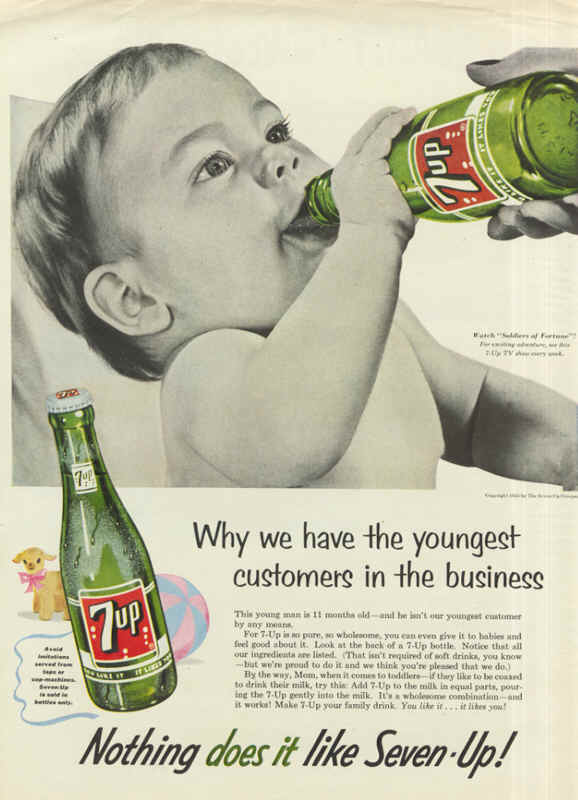
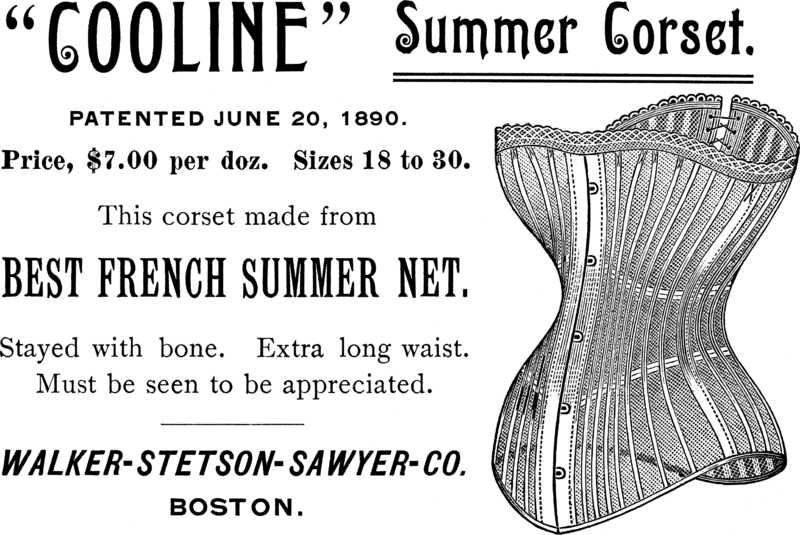
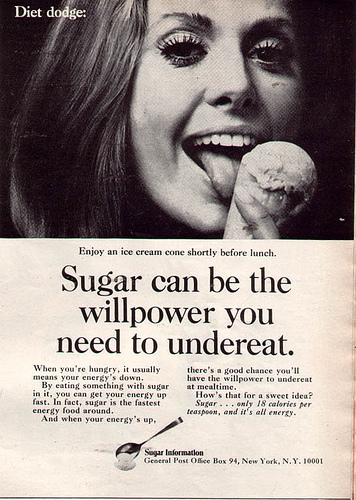
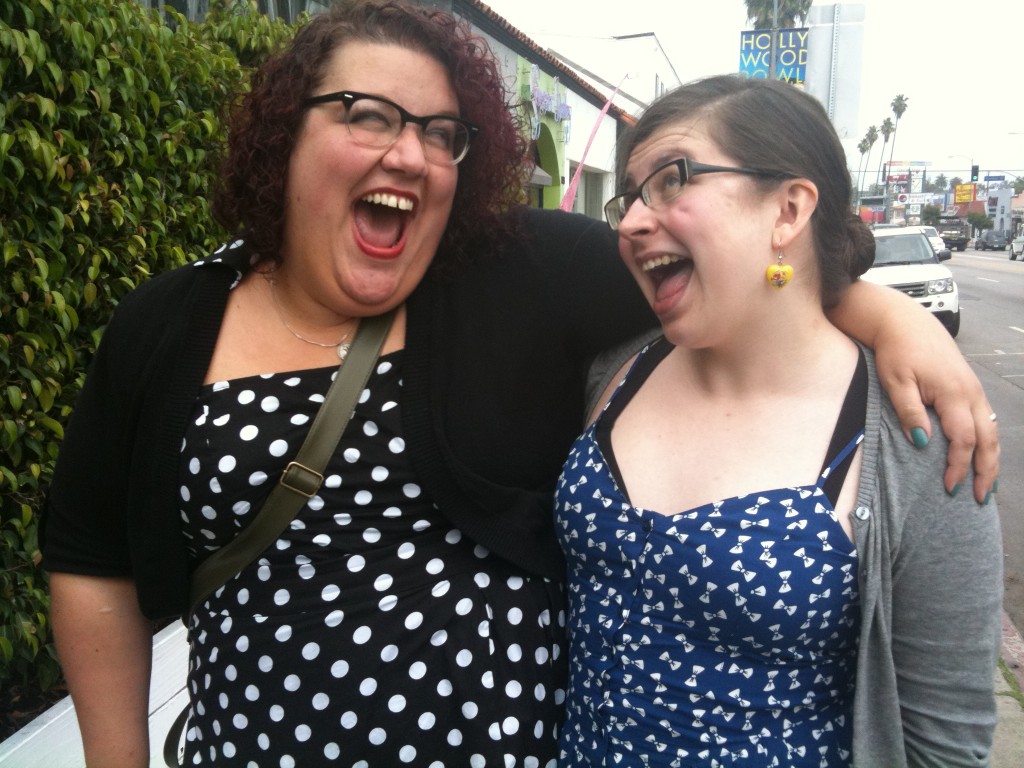





 Two Whole Cakes is a blog written by
Two Whole Cakes is a blog written by 

